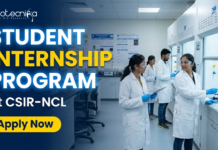US panel gives a green light to the FIRST CRISPR clinical trial
An advisory committee at the US National Institutes of Health (NIH) approved a proposal to use CRISPR–Cas9 to help augment cancer therapies that rely on enlisting a patient’s T cells.
The first trial is small and designed to test whether CRISPR is safe for use in people, rather than whether it effectively treats cancer or not. It will be funded by a US $250-million immunotherapy foundation formed in April by former Facebook president Sean Parker. The trial itself does not yet have a budget. The University of Pennsylvania will manufacture the edited cells, and will recruit and treat patients alongside centres in California and Texas.
The researchers will remove T cells from 18 patients with several types of cancers and perform three CRISPR edits on them. One edit will insert a gene for a protein engineered to detect cancer cells and instruct the T cells to target them, and a second edit removes a natural T-cell protein that could interfere with this process. The third is defensive: it will remove the gene for a protein that identifies the T cells as immune cells and prevent the cancer cells from disabling them. The researchers will then infuse the edited cells back into the patient.
“Cell therapies [for cancer] are so promising but the majority of people who get these therapies have a disease that relapses,” says study leader Edward Stadtmauer, a physician at the University of Pennsylvania in Philadelphia. Gene editing could improve such treatments and eliminate some of their vulnerabilities to cancer and the body’s immune system, he says.
“Last year’s excitement over CRISPR was in anticipation of this,” says Dean Anthony Lee, an immunologist at MD Anderson Cancer Center in Houston, Texas, and a member of the NIH’s Recombinant DNA Research Advisory Committee (RAC), which reviewed the proposal. CRISPR, he says, makes genome engineering easy enough that such trials can move forward quickly.
The RAC reviews all proposals for human trials involving modified DNA that are conducted in the United States. Stadtmauer’s team will now have to convince US regulators and review boards at their own institutions to allow the trial. Immunologist Carl June at the University of Pennsylvania, who is a science adviser on the project, says that it could begin by the end of the year.
Other trials may not be far behind. Editas Biotechnologies in Cambridge, Massachusetts, for instance, has said that it wants to use CRISPR in a clinical trial for a rare form of blindness as soon as 2017. However, RAC members say that they have not yet been approached about reviewing the trial.
“Any first use in humans we have to be extraordinarily careful,” Zoloth says. So a lot is riding on this trial.
But Mildred Cho, a bioethicist at Stanford University in California and an RAC member, says that safety work in animals for a new therapy will take researchers only so far. “Often we have to take the leap of faith.”






















